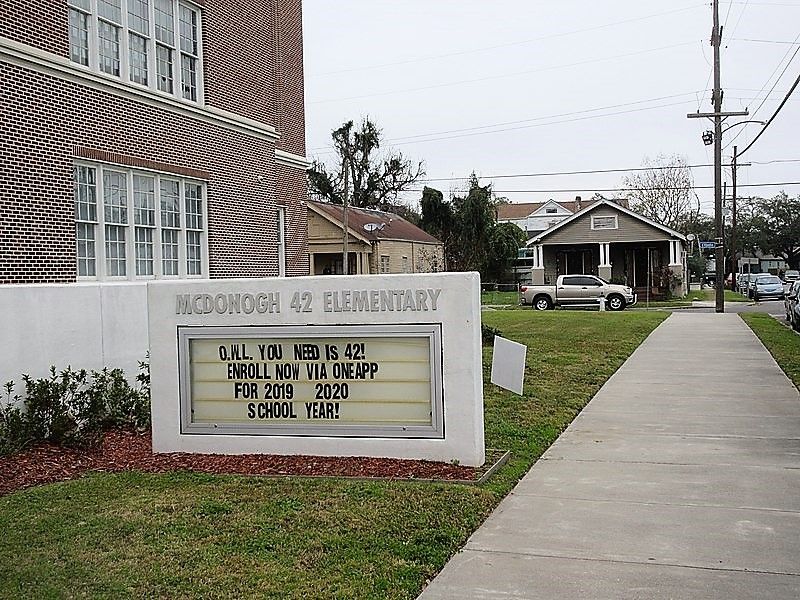On Monday, Jamar McKneely, the CEO of InspireNOLA Charter
Schools, wrote to the NOLA Public School Board on the subject of the renaming
of the McDonogh #42 Elementary Charter School. InspireNOLA is a charter group
that operated seven New Orleans schools, including both remaining McDonogh
Schools.
The letter requested amending the NOLA Public School's
policy on naming facilities—which had held that, since 2015, all school names
are considered permanent—in order to allow for name changes. It also asked for
the authority for InspireNOLA to create a community-based exploratory committee
for changing the name of McDonogh 42 school facility and for the board to allow
the name to be changed once the committee recommends one.
"Public schools have a unique mandate to ensure that their curriculums, programming, and cultural competence reflect that of the people and communities they serve," McKneely wrote. "In the current political climate, our schools have an opportunity to be responsive to the will of their constitutes."

Lately, it seems that the will of the constituents is to
remove the name of John McDonogh, a wealthy slave owner who used his funds made
directly off of the slave trade and plantation economy to build over 30 New
Orleans schools. The New Orleans public school system, created in 1841 with
these funds, was exclusively for the education of white children. Only after
Reconstruction were McDonogh's funds used for the education of black students,
but these students were soon pushed out of many schools as black residents were
pushed out of certain areas of the city, according to McKneely's letter. One
example of this was McDonogh #6, which opened in 1876 as the first decent
school for black students, until black students were kicked out as the
neighborhood around the school became whiter and wealthier.
This letter demanding action comes after protesters removed
a bust of McDonogh from Duncan Plaza earlier this month and threw it into the
Mississippi River as a part of the process of removing statues of confederates
and racist figures from the city. This is not the first time that opposition
against McDonogh has taken the form of protest. In 1954, as one of the first
Civil Rights Era protests in New Orleans, educators and civil rights leaders
boycotted the annual ceremony honoring McDonough.
In the 1980s and 1990s, many schools' names were changed following
the acknowledgement of McDonough's slave-owning, but there are still some
public-school buildings in New Orleans named after him, including McDonogh 35
and McDonogh 42. The focus of this letter has been on McDonogh 42, the elementary
charter school, rather than on McDonogh 35, which was the first New Orleans
high school to teach black students and has grown to have a reputation for
academic excellence. Some believe that there is a not a similar push for the
renaming of McDonogh 35 because the change and conquest of the school has
demonstrated how people can make their own course, despite the origins of systemic
racism in education.
The Orleans Parish School Board and NOLA Public Schools are
currently reviewing the name-changing policy, as they are called to take
action. School Board President Ethan Ashley says that the board will work with
school communities for new naming options to be presented at their July board
meeting, according to WWNO.
"We want our schools to be welcoming, inclusive, and
inspiring environments for our students each day," Ashley said in the
statement. "A key part of that is ensuring that the names of our schools and
the people that we honor through naming are reflective of the values of our
district."

